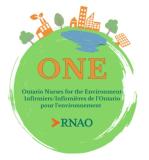Letter to the Editor regarding Ontario Provincial Government’s “Get it Done Act”
On February 20 the Ontario government introduced Bill 162, the “Get it Done” act. Seemingly undeterred by the recent Greenbelt land swap scandal, this bill incentivizes developers to continue to build bigger more expensive homes (McMansions) away from established municipalities. This, despite established wisdom from the business pages of the Toronto Star and the government’s own Housing Task Force recommending that Ontario channel its construction infrastructure into supporting denser lower cost housing in existing built-up areas. Density is needed to end car dependence and make transit more cost effective, thus decreasing greenhouse gas emissions.
Bill 162 also proposes streamlining the Environmental Assessment process so that developers can proceed more quickly in expropriating land and destroying environmentally sensitive areas. Presently there is a federal environmental assessment occurring in the proposed Highway 413 route. Twenty-three species are listed as endangered, threatened or of special concern along the route. Ontario needs natural areas and habitats to preserve our natural heritage and as a carbon sink to mitigate the climate crisis. According to Environmental Defense, Highway 413 would cause over 17 million tonnes of additional CO2 emissions by 2050, the same date when Canada is supposed to be reaching net zero emissions.
To be willfully blind to the evident climate crisis and continue a destructive path that harms the health and well being of Ontarians is corrupt, immoral and foolish.
Brenda Hutton, RN
Member at Large, Ontario Nurses for the Environment Interest Group, RNAO
Main reference is Environmentaldefence.ca
On Sept 25th, prior to the fall 2019 Canadian federal election, ONEIG facilitated a webinar with Gideon Forman of the David Suzuki Foundation. In our current global context of a climate emergency and its related devastating human health impacts, it is imperative to mobilize the nursing climate action vote. This hour-long interactive webinar on climate change explored the opportunities for nursing advocacy in the context of a federal election.
Key learning objectives included understanding:
- Why the upcoming federal election was important in relation to Canada’s role in mitigating climate change
- The RNAO's federal election environmental platform
- Ways to mobilize the vote for climate action in our communities while remaining non-partisan
A toolkit to accompany this webinar is available here.


